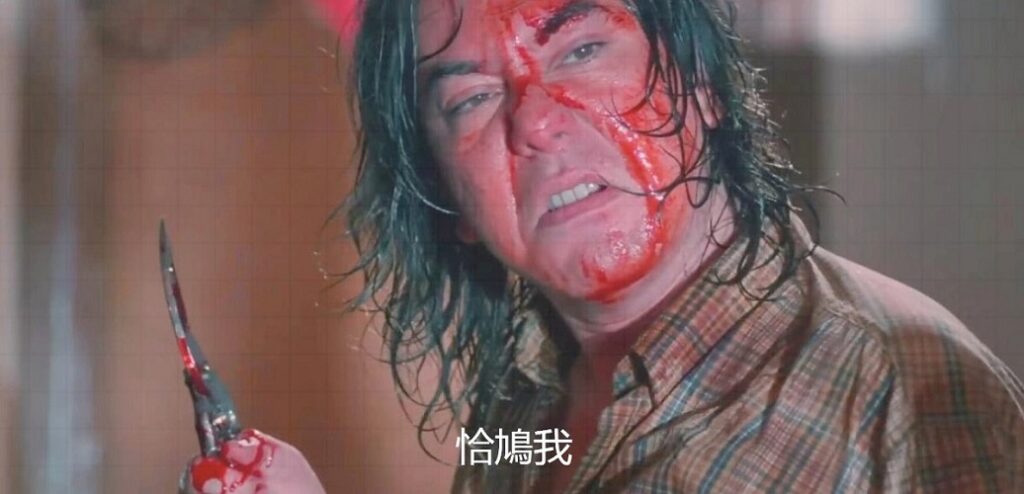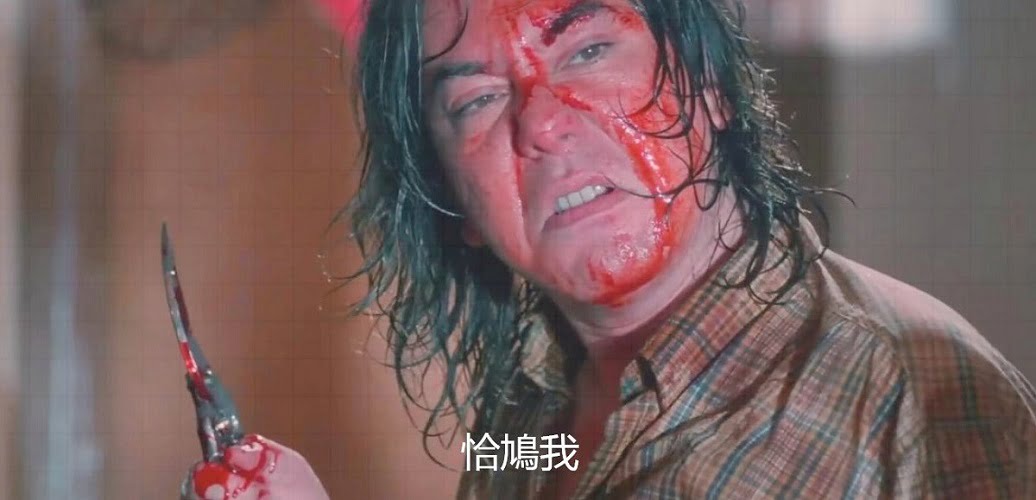
There is probably no way you can remake Ebola Syndrome. Certainly not in Hong Kong.
For starters, any movie where the protagonist screwed someone’s wife, got beaten up by the husband, urinated on by same wife, then lost it and massacred everyone while the daughter was watching, is not going to fare well with today’s investors.
Not to mention pouring gasoline on said daughter and trying to burn her alive, all within the first seven minutes of this abomination.
Horrendous as it is, such depiction of sex and brutality still fell within the tolerance of censors. At least that’s the case in the old days. Sadly, since last year’s government crackdown on democratic dissent, freedom of expression in Hong Kong has never been the same.
A recent incident involving the Caped Crusader might help shed some light: October last year, organizers of a screening of The Dark Knight received a notice from The Hong Kong Government Office for Film, Newspaper and Article Administration, deeming the movie too violent for outdoor viewing. Ironically enough, parts of Nolan’s sequel were actually shot in Hong Kong with cooperation from the authorities, who at the time saw it as positive PR.
However, to say that Ebola Syndrome has become taboo because of obscenity and gore would merely be scratching the surface.
Surely, an anti-hero plagued with deadly disease spitting venom at innocent bystanders is not the best idea during the pandemic. Especially when Hong Kong has just abolished strict hygiene policies: back then facemasks was a must, restaurants had seating limits and the infected were banned from public areas through a surveillance app in everyone’s phone. But hypochondriasis is just the zeitgeist of our times, commonly shared by the West World. This alone just couldn’t explain why a remake of this film would be dreaded by China.
To solve our little mystery, perhaps we should listen to “Ah Kai” himself. On February 1, 2020, right after the World Health Organization declared Covid an international emergency, actor Anthony Wong wrote on his Facebook page: “It’s looking more and more like Ebola Syndrome (the film I made). Hup gau ngo.”
Wong, of course, played the lead in the film and “hup gau ngo” was his catchphrase, which roughly translates to “dicking me around”. This Cantonese profanity was uttered a dozen times in the movie and has since become a popular quote. According to the director Herman Yau, it also embodies the theme of his film, though what that is exactly he wouldn’t say.
So what does it all mean? And why is that political taboo?
香港再也無法孕育出一部像《伊波拉病毒》般如此邪典,如此喪盡天良的電影。
首先,如果電影開場橋段為主角和社團大哥的女人偷歡(當中當然涉及裸露鏡頭),後被捉姦,痛毆,再被同一個妻子撒尿,最後在女兒的注視下瘋狂屠殺所有人,相信以足夠嚇怕所有投資者。
更不用說在這部作品的前七分鐘里,就有人把汽油澆在女兒身上,試圖將她活活燒死。
儘管這樣的性和暴力描繪是可怕的,但它仍然在舊時代的審查制度的容忍範圍之內。可悲的是,自從去年政府打壓民主反對派以來,香港的創作空間日益收窄,創作自由從未如此受限。
最近發生的有關蝙蝠俠的事件或許能有所啓示:去年10月時,《黑暗騎士》的放映組織者收到了香港電影、報紙和文章管理辦公室的通知,認為這部電影過於暴力,不適合在戶外放映。然而諷刺的是,諾蘭的續集實際上是在香港拍攝的,當時甚至得到了香港政府支持,認為這是正面的公關活動。
如果認為《伊波拉病毒》是因為淫褻和血腥畫面而成為禁忌,那僅僅是隔靴搔癢。
在疫情大流行期間,一個被致命疾病困擾的反英雄向無辜路人吐口水無異與主旋律大相逕庭。特別當香港早前才廢除嚴格的衛生政策:戴口罩在2022時還是強制的,當時餐廳有座位限制,感染者通過每個人手機上的一款監控應用程序被禁止進入公共區域。也許,過度擔心疾病只是我們這個時代的風潮,為西方世界所共享。這並不能解釋為什麼中國當局懼怕這部電影的翻拍。
我們應該聽一聽「阿雞」本人的話,以解決我們的小謎團。2020年2月1日,在世界衛生組織宣佈Covid為國際緊急情況之後,演員黃秋生在他的Facebook頁面上寫道:「越來越像《伊波拉病毒》(我拍的電影)。恰鳩我。」
黃秋生在電影中扮演了主角,而「恰鳩我」則是他的口頭禪。這個粗口在電影中被說了數十次,後來成為香港的流行文化象徵之一。根據導演邱禮濤的說法,它也體現了他的電影主題,儘管他不願意透露具體是什麼。
那麼這一切意味著什麼?為什麼它成為了政治禁忌?

